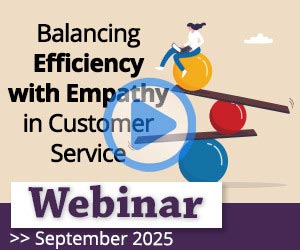Remember being sent off to another country for a language exchange? Here is the example of another company that is doing this with two of its call centres.
Could we all benefit from a period of time in another call centre? Jonty Pearce investigates.
It all started over a misunderstanding.
One day last year, an Oceans Connect staff member threw up his hands in frustration and said, ‘Why don’t they do it like we do it?’ The idea for an intra-company talent exchange was born.
Oceans Connect is an Indian outsourcer (based in Pune). In July 2008, they acquired Positive Contact as a small UK contact centre based in Runcorn, to be able to offer a blend of onshore and offshore services.
But cultural and professional differences started to emerge. The executive committee of Oceans Connect was concerned about these differences.
“If we are promising clients a seamless, borderless, end-to-end outsourcing solution, we must make sure we operate that way ourselves – regardless of where our employees sit,” explains Howard Sarna, Chief Executive.
“We decided to implement a talent swap of sorts, sending several employees from our Runcorn office to spend time at the call centre in Pune – and vice versa. It’s a simple idea, but perhaps not an obvious one. We have, however, found it to be an enormous help in ensuring that best practice, wherever it originates, is deployed wherever it is needed.”
First steps
In six months, the exchange programme has sent 15 employees from Pune to the UK, and 5 management-level employees from the company’s Runcorn office have travelled to India.
Typically, three or more employees will visit the Runcorn operation at a time, and, depending on the job and the employees’ personal circumstances, stay for anywhere from a couple of weeks to several months. As the Runcorn staff is smaller and absences harder to absorb, those on talent exchange to Pune typically fly solo and are then fully immersed over a period of a couple weeks.
“We want to make sure that the staff on exchange have an experience that is as close as possible to that of their colleagues who live there permanently,” said Debbie Collins, Manager of Human Resource in Runcorn and administrator of the exchange programme.
New habits all around
Rather than exchange jobs directly with their opposite numbers on the other side of the world, each participant embarks on an information swap, to work on developing process and work-culture synergies. Often the employees from Pune are tasked with extensions of their own roles within Runcorn, enabling the transition of technology, accreditation and systems. Team leaders from Pune and Runcorn have observed first hand how their counterparts and their teams operate.
One of these team leaders is Claire Prince, who recently returned to Runcorn from her Pune exchange. According to Claire, the swaps have been instrumental in standardising best practice on company policies
“The goal is to take the best of what each office has to offer, and wherever practicable, apply it to the other,” she said. “The idea is to think and act like one company, and to make sure everyone upholds the values.”
Among the many examples, dress-down Fridays – while de rigueur in Runcorn – were recently introduced to great effect in Pune; and the idea of intra-office cricket matches, a tradition in Pune, is now being adopted in Runcorn as football matches.
Separated by a common language
While each of the two call centres is staffed with highly motivated and skilled English-speaking employees, Oceans Connect found there were several areas where cultural differences highlighted practical issues.
“I am impressed with the flexible work hours supported by some companies in the UK – like Oceans Connect,” said Al Imti, a team leader in Pune with responsibility for 45–50 staff. “But I find this poses a challenge when getting the team together after a shift, to debrief them and go over the day’s activities.”
Team leaders in Runcorn have started to implement more regular briefing and de-briefing meetings, although split shifts make full attendance a challenge.
The Pune team also admire the fact that employees in Runcorn drive to work themselves, which is not always the case in Pune; while Imti and her female colleagues have drivers’ licences, it is Oceans Connect policy for women to be driven to work in Pune for safety and policy reasons.
Indeed Imti has found her three-month exchange in Runcorn so useful that she has agreed to extend her stint by a month.
The talent exchange has helped create a marked reduction in attrition rates at both locations.
The Pune Team pictured in the group photo above, from left to right – Ashish Batra – Transition and Accreditation Manager, Al Imti – Operations Team Leader, Madan Kauslik – IT Senior Systems Administrator, Faiyaz Shaikh – Transition, Accreditation Assistant Manager.
Dealing with regional accents
Training departments in Runcorn and Pune have been working together to develop a series of ‘real-life’ examples demonstrating the nuances of regional accents/speech patterns and colloquialisms, by means of voice recordings used in training in India. It has been as good for morale as it has for professional achievement – the UK HR department is now conducting telephone interviews for employees who will potentially work long-term in the Pune location and company-wide training processes will doubtless provide further insight into the operations between the two centres.
HR departments in both locations agree that this kind of investment in training improves integration and employee retention. Although it is not realistic for this type of exchange to be included in agent training, it is certainly mentioned as part of the recruitment process for management-level positions in Pune and Runcorn. Managers in both locations recognise the cultural, training, technological and commercial benefits to this innovative talent exchange programme.
An open call centre exchange
This seems to be a good example of how two call centres can exchange ideas and best practice. It will certainly help to integrate the company together.
While better suited to a single call centre, it does strike me that an exchange programme could be a good idea to develop talent and provide career development. We see it in place in some companies in their graduate development programmes.
Could it be deployed between like-minded call centres?
Author: Jonty Pearce
Reviewed by: Jo Robinson
Published On: 5th Aug 2009 - Last modified: 20th Jan 2026
Read more about - Call Centre Questions, Call Centre Answers, Empathy, Motivation, Rapport






































I think this is a great idea. It is great to share best practise and change the image of call centres for staff at all levels. I would like to investigate this further